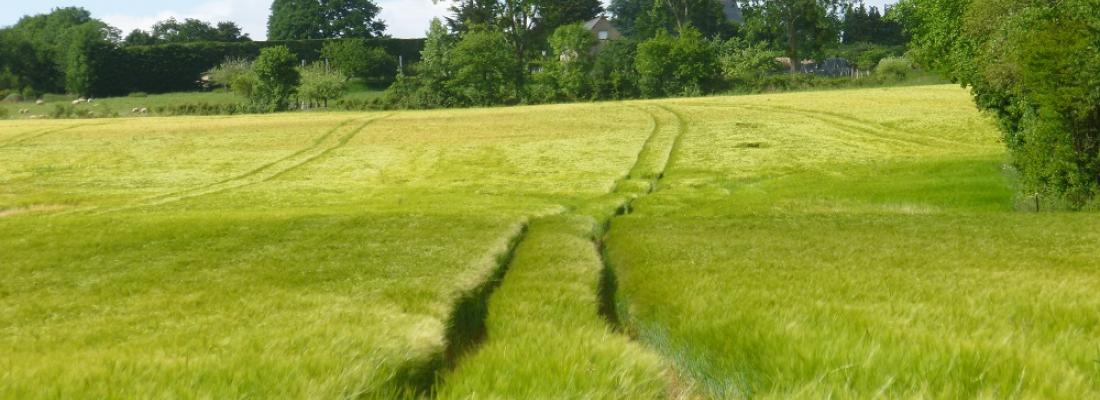Agroecology Reading time 3 min
Reducing pesticide use in agriculture without lowering productivity
Published on 27 February 2017

The results were obtained through an analysis of the diversity and productivity of cropping systems (1) within the DEPHY-Ferme network. The data were based on 946 farms growing major conventional crops with differing levels of pesticide use and diverse French farming practices. The INRAE researchers studied the relationship between the level of pesticide use, productivity (MJ/ha/year) and profitability (estimated using semi-net margins, €/ha/year).
Initial results show pesticide use can be reduced without losses in productivity
The analyses show that the relationship between the Indicator of Frequency of Treatment (IFT)(2) of phytosanitary products and productivity/profitability depends on the local situation. Factors include soil type; climate; whether crop production is combined with livestock farming, which facilitates diversification with hardy forage crops; access to irrigation; and market opportunities for industrial crops. When taking these factors into account, the IFT can be lowered while maintaining or improving productivity in 94% of cases and maintaining or improving profitability in 78% of cases. However, this reduction in the IFT does not lead to economic gains in 89% of cases.
Pesticide use across France could be reduced by 30%
The researchers also outlined a broad transition scenario called ECOPHYTO, in which DEPHY farmers would adopt suitable practices for their situation with a lower IFT and equivalent or higher profitability (to ensure the transition is economically acceptable). According to this scenario, the average IFT reduction for farms modifying their cropping system would be 42%, without any losses or gains in profitability. When extrapolated to the national level and taking into account farms that could not change their system without lowering profitability, the average reduction would be 30%. Based on this scenario, farms that modified their practices could lower their average use of herbicides by 37%, fungicides by 47% and insecticides by 60%.
These results demonstrate that lowering pesticide use without reducing performances is possible from technical and economic standpoints as long as substantial changes to cropping systems are made. Such changes include crop diversification, with the introduction of hardy crops or temporary grasslands in livestock farming areas; variety diversification; altering planting dates and fertilisation conditions while also modifying yield targets for certain crops; the use of stale seedbed techniques; and mechanical weeding. However, implementing these changes is not necessarily easy and farmers need guidance in doing so, including advice on organising their farming activities, covering increased risk exposure, etc. Moreover, because these substantial changes do not produce economic gains for farmers in 89% of cases, economic incentives will also be essential (e.g., payments for ecosystem services).
(1) A cropping system refers to all of the technical conditions implemented consistently across cultivated fields. Each system is characterised by the type of crop and order of succession as well as the crop management sequences applied to the different crops, which includes the choice of varieties.
(2) The IFT is used to track pesticide use at the level of a farm or group of farms. The IFT calculates the number of standard doses used per hectare during a crop year. This indicator can be calculated for a set of fields, an entire farm or a region. It can also be calculated for broad product categories (e.g., herbicides, fungicides, insecticides and acaricides, other products).
Référence
Martin Lechenet, Fabrice Dessaint, Guillaume Py, David Makowski and Nicolas Munier-Jolain. 2017. Reducing pesticide use while preserving crop productivity and profitability on arable farms. Nature plants, 27 février. 10.1038/nplants.2017.8
